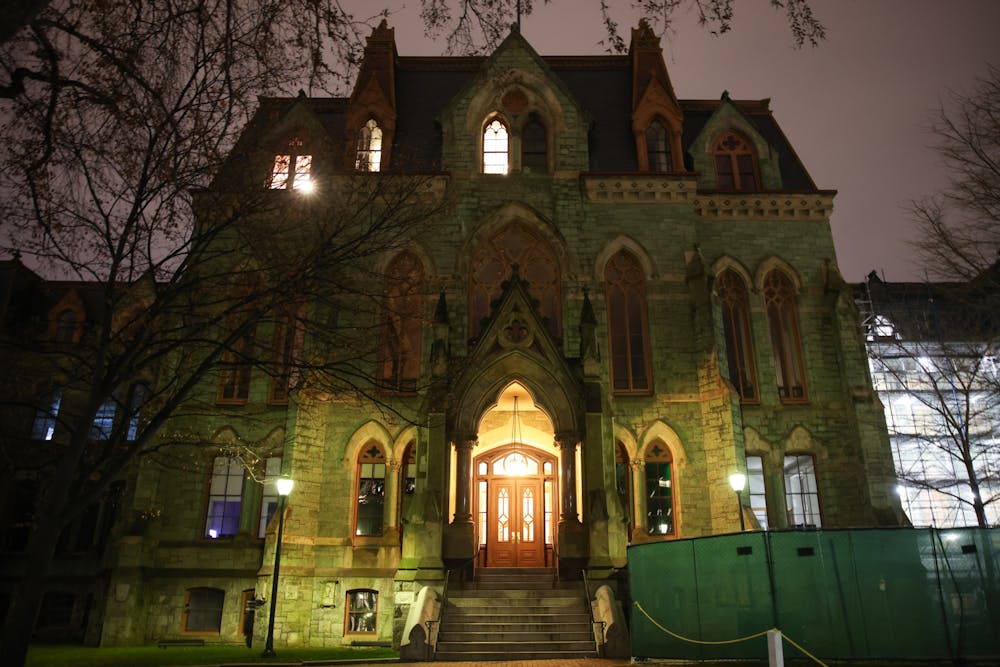
Another day, another front page news story for the University of Pennsylvania: “What to know about Elizabeth Magill, the Penn president who resigned.”
An above-the-fold New York Times article citing a president’s resignation might be devastating for many schools. At Penn, however, bad press has been the status quo these last few years. In my tenure alone, Penn has made news for COVID-19 policies, silencing swimmers in light of concerns over their transgender teammate, the discovery of classified Biden administration documents, awful on-campus free speech rankings, and taking anonymous donations from Chinese adversaries. Recent concerns over platforming antisemitic speakers and, most recently, poorly executed congressional testimony seem to just be icing on the cake.
While all of these news stories span a wide array of academic, political, social, and cultural issues, they all share one thing in common. They stem from a lack of transparency and a principled commitment to dodgy public relations rather than academic freedom or student experience. During the pandemic, Penn should have been forthright about what epidemiological data was advising its decisions. While the controversy ensued over Lia Thomas’s swimming, they should have allowed student-athletes to express their frustrations over conditions in their locker room.
This lack of transparency became excruciatingly clear during the recent hearings when the president refused to acknowledge the lack of ideological diversity or the hypocritical enforcement of “open expression principles.” The University has a trust problem, and rightfully so.
However, what the University administration has missed is that, as Alexander Hamilton famously said, “Those who stand for nothing fall for anything.” It was only a matter of time before a castle with no foundation crumbled, and sadly for Liz Magill, she was the monarch leading the charge when it finally came down. Although the Bok-Magill administration was new, many of the problems we are currently seeing come to a head are ones they inherited from presidents and Board of Trustees chairs of old. Obviously, many of the aforementioned incidents started during Amy Gutmann’s presidency, but Penn’s free speech problems date back to the 1990's during the “water buffalo incident”, which resulted in the founding of FIRE.
That said, I do think that this situation provides Penn with an extremely unique opportunity to take the criticism it is receiving and channel it into an era of principles and transparency in new leadership.
For starters, Penn needs to make very clear what it stands for on issues of free speech. The best, and most direct, way to do this would be for Penn to adopt the Chicago Principles (also known as the Chicago Statement). This statement expresses a clear, absolute, and direct commitment to open expression no matter how controversial the issue, or what external factors are at play. It was initially conceived at the University of Chicago, hence its name, and has since been adopted by many of our peer institutions, including Princeton, Vanderbilt, and Georgetown. Notably absent from this list are both Harvard and Penn.
This adoption cannot take place in a vacuum, however. The University needs to be forthcoming about its tenuous relationship with free speech in the past. Rep. Jim Banks (R-Ind.) addressed this in the congressional hearing citing the deplatforming of former ICE Acting Director Thomas Homan and investigations into Amy Wax. The next administration should clearly outline to the community the difficulties in regulating hate speech, as demonstrated by recent events. Since delineations of what constitutes “hate speech” can vary depending on who you are talking to, creating guidelines that imply it will be restricted on campus leaves us open to questions like those posed by Rep. Elise Stefanik (R-N.Y.).
To be clear, as I expressed in a column earlier this semester, I am deeply troubled by the rampant antisemitism abounding on campus. The last few weeks have proven that those in power will only regulate speech when it is to their political convenience.
Going forward, the University needs to adopt a true stance of institutional neutrality. This means not putting out statements on any political issue, no matter how much of the student body may agree with the University’s position. As has been left out of most of the dialogue on recent events, donors like Marc Rowan weren’t simply upset because the University hadn’t responded quickly enough to the Oct. 7 attacks, but because they had no hesitation when putting out responses on any other hosts of issues.
This vexation is reasonable when there are so many examples of unequivocal condemnation on the part of the University over issues like Roe v. Wade’s reversal and the death of George Floyd. But should this just be a furious race to put out the most aggressive statement that will please the most students and donors? That doesn’t seem like a viable way to run a University, and recent events have proved as such.
Justice Louis Brandeis once said, “Sunlight is said to be the best disinfectant. If the broad light of day could be let in upon men’s actions, it would purify them as the sun disinfects.” He discussed this originally in the context of transparency, but it has often been invoked by advocates of free speech to express why discussing problematic and hateful ideas out in the open is the best way to rid our society of them. I think that in the case of Penn, this shows just how effective an apolitical commitment to free speech and honesty on the part of our next administration can be in quelling the on-campus divisiveness.
As we look to crown our next head of state at Penn, let's rebuild having learned from our mistakes. Here’s to welcoming in an era of transparency and open expression.
LEXI BOCCUZZI is a College senior studying philosophy, politics, and economics from Stamford, Conn. Her email is boccuzzi@thedp.com.
The Daily Pennsylvanian is an independent, student-run newspaper. Please consider making a donation to support the coverage that shapes the University. Your generosity ensures a future of strong journalism at Penn.
Donate







